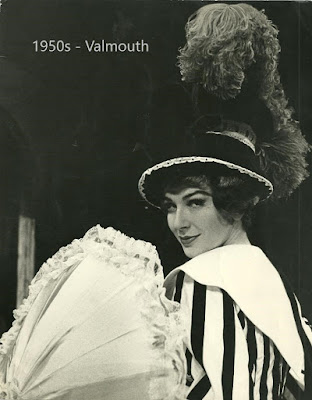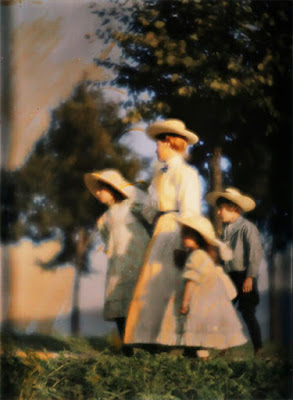Browsing in my collected Larkin the other day, I came across this short, simple and rather lovely little poem about pigeons –
'On shallow slates the pigeons shift together,
Backing against a thin rain from the west
Blown across each sunk head and settled feather.
Huddling round the warm stack suits them best,
Till winter daylight weakens, and they grow
Hardly defined against the brickwork. Soon,
Light from a small intense lopsided moon
Shows them, black as their shadows, sleeping so.'
It was written at Christmas 1955, when Larkin and his mother were staying in a hotel in Grantham. This Lincolnshire town was the birthplace of Margaret Thatcher, and is the site of St Wulfram's church, which boasts a steeple so tall and beautiful that Ruskin is supposed to have swooned when he first saw it. However, the thought of Christmas in a Grantham hotel, then or now, does not set the pulses racing. Larkin clearly spent a good deal of that Christmas staring bleakly out of the window – which at least gave him one good poem.
Writing to his mother the following September, he discusses two recent radio programmes about him, one of them focusing on his life in Hull –
'The Hull programme was all right but I thought the poems were read badly. The one about Pigeons was written at Grantham when we were there at Christmas — they were on a roof opposite the hotel and I watched them through the short afternoons as we sat in the lounge. Do you remember them? I expect not. You were asleep most of the time.'
In the poem, Larkin writes tenderly of the pigeons, as he often does of animals and birds. Pigeons make another memorable appearance in his novel A Girl in Winter, at an emotional turning point, just after Katherine, the troubled young woman at the centre of the story, has a kind of epiphany, feeling her frozen heart suddenly thawed by compassion, and glimpsing the possibility of happiness. She and Miss Green, the library colleague she is reluctantly escorting home, are sitting, huddled against the cold, on a bench in the centre of a dreary northern town –
'Through the light mist she [Katherine] could see the ornamental front of the Town Hall under the flat shield of the sky, dark and ledged with snow. But all the white-grey patches were not snow, for as she watched they revealed themselves as pigeons, a score of them launching off into the air and hanging with a great clapping of wings. Then the whole flight dropped, rose over the intervening trees across the traffic, and landed on a stretch of snow not fifteen yards from where the two of them sat, coming up as if they expected to be fed.'
In poetry, pigeons have their finest hour in the glorious closing image of Wallace Stevens' 'Sunday Morning' –
'We live in an old chaos of the sun,
Or old dependency of day and night,
Or island solitude, unsponsored, free,
Of that wide water, inescapable.
Deer walk upon our mountains, and the quail
Whistle about us their spontaneous cries;
Sweet berries ripen in the wilderness;
And, in the isolation of the sky,
At evening, casual flocks of pigeons make
Ambiguous undulations as they sink,
Downward to darkness, on extended wings.'
To descend from the sublime to the faintly ridiculous, there is a poem by one James Henry titled simply 'Pigeons' –
'By what mistake were pigeons made so happy,
So plump and fat and sleek and well content,
So little with the affairs of others meddling,
So little meddled with? say, a collared dog,
And hard worked ox, and horse still harder worked,
And caged canary, why, uncribbed, unmaimed,
Unworked and of its will lord absolute,
The pigeon sole has free board and free quarters,
Till at its throat the knife, and pigeon pie
Must smoke ere noon upon the parson’s table;
Say, if ye can; I cannot, for the life o’ me;
But, wheresoe’er I go, I find it so;
The pigeon of all things that walk or fly
Or swim or creep, the best cared-for and happiest;
Ornament ever fresh and ever fair
Of castle and of cottage, palace roof
And village street, alike, and stubble field,
And every eye and volute of the minster;
Philosopher’s and poet’s and my own
Envy and admiration, theme and riddle;
Emblem and hieroglyphic of the third
Integral unit of the Trinity;
Not even by pagan set to heavier task
Than draw the cart of Venus; since the deluge
Never once asked to carry in the bill,
And by the telegraph and penny-post
Released for ever from all charge of letters.'
Henry is right about the sleek, well fed apparent contentment of wood pigeons at least, if not of town pigeons, whose lives seem harder. I like 'every eye and volute of the minster', but there is not much to commend about this cheery little poem, though its awkward, busy gait might be taken for a poetical representation of a pigeon's walk.
James Henry was an Irish physician who devoted most of his life to the obsessive study of Virgil, and published a good deal of verse at his own expense, all of which sank without trace. He was entirely forgotten until Christopher Ricks rediscovered him while researching his New Oxford Book of Victorian Verse, and subsequently edited a small selection of Henry's verse for the Lilliput Press. At his best he is said to be reminiscent of another free-thinking Victorian maverick, Arthur Hugh Clough, and at his worst of William McGonagall – which is quite a range. He also published much prose, mostly on Virgilian matters, but including A Letter to the Members of the Temperance Society, in which he warns of the danger of substituting tea and coffee for spirituous liquors, and proposes a diet from which both of these dangerous liquids are excluded. Sound medical advice if ever I heard it.













